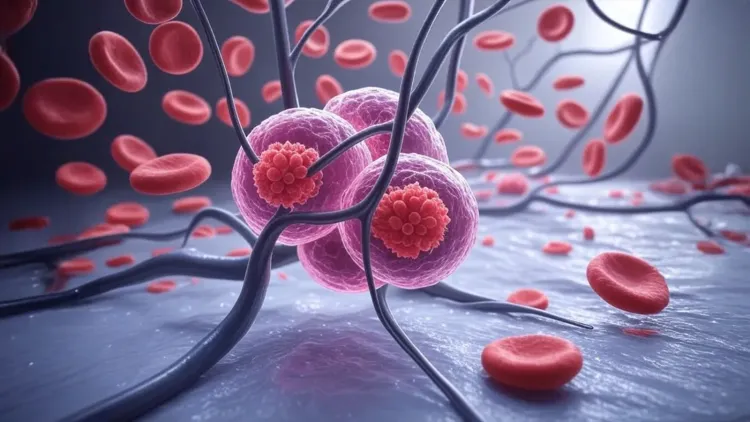How is Global AI Collaboration Transforming Cancer Treatment?

Synopsis
Key Takeaways
- AI technology is revolutionizing cancer treatment.
- Federated deep learning ensures privacy while analyzing global datasets.
- Proteomic data integration enhances diagnostic accuracy.
- CMRI's ProCan program focuses on personalized treatment.
- This research marks a significant milestone in precision oncology.
New Delhi, June 11 (NationPress) An international collective of researchers has introduced a groundbreaking artificial intelligence (AI) technique that securely evaluates cancer samples from around the world, setting the stage for more personalised and privacy-respecting cancer therapies.
This cutting-edge method is set to expedite personalised cancer treatment by allowing healthcare professionals to more effectively align therapies with individual patients, as reported by the Xinhua news agency.
The research encompassed the examination of protein profiles, referred to as proteomes, from 7,525 cancer samples amassed by 30 collaborating research teams across six nations, including Australia, the United States, Canada, Spain, Greece, and Austria.
Researchers, led by the Children's Medical Research Institute (CMRI) in Australia, noted that stringent privacy regulations and variations in laboratory techniques have traditionally hindered the integration of extensive cancer datasets.
To tackle these challenges, the CMRI team in Sydney employed federated deep learning, training AI models locally so that only insights—and not sensitive data—were communicated to a central server. This innovative approach enabled the creation of an effective global diagnostic tool without the need to transfer patient information between institutions, as detailed in the study published in Cancer Discovery.
"It was a moment of great excitement when we first observed that results from data with stringent access restrictions were just as precise as those obtained when all data was centralized," remarked Roger Reddel, CMRI Director and Head of the Cancer Research Unit.
The method adeptly combined proteomic data acquired through various techniques, enhancing diagnostic accuracy, Reddel, who also served as the study's senior author, stated.
This research, part of CMRI's ProCan program, seeks to utilize proteomic data to inform cancer treatment decisions. Reddel emphasized that this AI-driven approach signifies a significant advancement in precision oncology through large-scale data analysis.
"The aim of CMRI's ProCan research initiative is to develop proteomic tests that help cancer clinicians select the most effective treatments for their patients. By overcoming significant obstacles to the collection and analysis of extensive cancer proteomic datasets, we have made substantial progress toward this objective," Reddel concluded.










